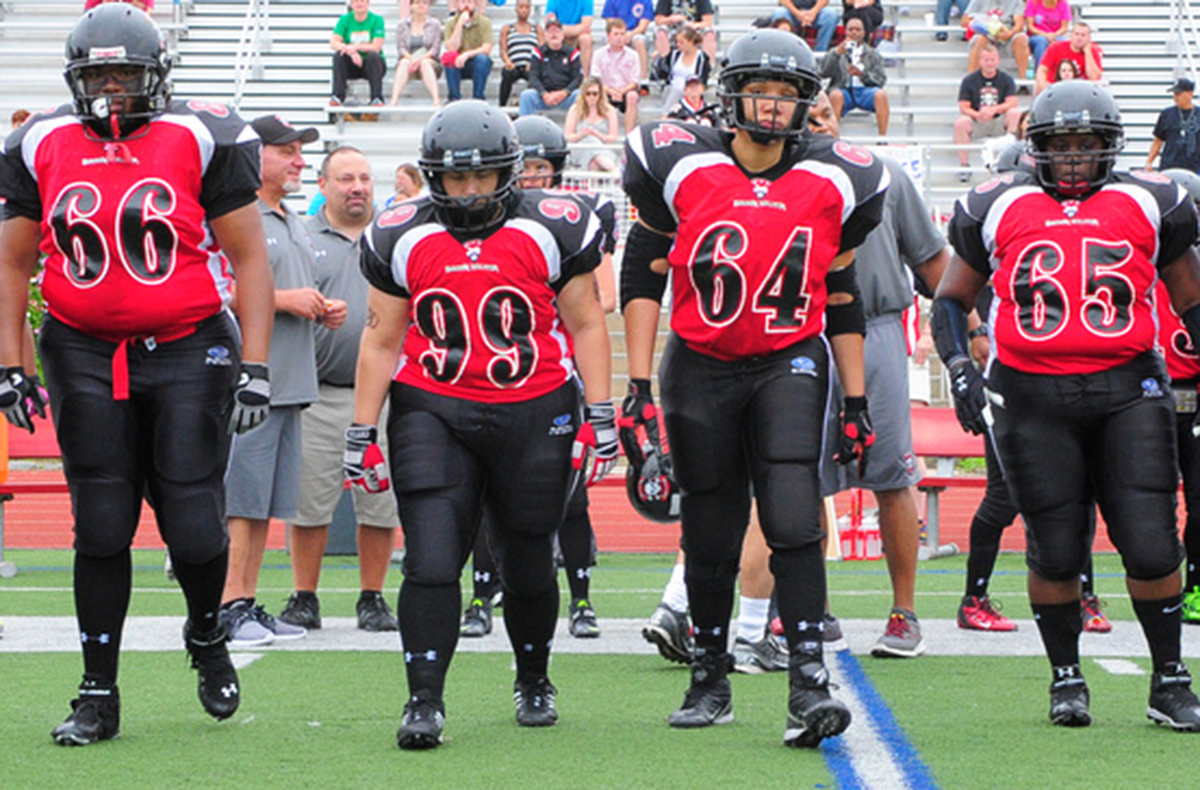Women’s Full Contact Football Team, Boston Militia, ‘Discontinued’

Image via Boston Militia on Facebook
They’ve won multiple championships, set a standard for women in sports, met with President Barack Obama, and taken down their opponents with force. But the Boston Militia, the area’s competitive female football squad, has been “discontinued,” according to the team’s chairman and CEO, Ernie Boch, Jr.
“It is with heavy heart that I announce the discontinuation of the Boston Militia,” Boch, Jr., said in an announcement posted to both the team’s website and Facebook page on Monday. “The limited numbers of teams in the Northeast has resulted in a reduced schedule over the last few years, causing the professional level of competition to decline.”
According to the team’s website, Boch, Jr., created the Boston Militia full-contact women’s football team in 2007 with the members of former Boston women’s teams, the Boston Rampage and Massachusetts Mutiny.
The Militia, which plays home games in Somerville at the Dilboy Stadium, is the 2014 champion of the Women’s Football Alliance. The team has played consistently ranked at the top of the league, posting a record of 67-6 over the seven seasons since its inception, according to Boch, Jr.
Boston reached out to the team for additional comment but did not immediately receive a reply. The fate of the team, and their position in the league, remains unknown.
Monique Forges Duda, a former athletic trainer and sport medicine professional for the Militia, was shocked by the news of the discontinuation.
“I was in complete disbelief,” she said, citing her three years working with the team as one of the best jobs she has ever had. “I don’t think any of the players were expecting this, quite honestly. None of the players knew it was coming. It’s pretty unfortunate, because they’re an incredible team.”
Duda said that the Militia set a great example for women who want to be part of sporting teams that are usually exclusively dominated by male players. She said she has “no idea what happens next,” but she hopes there’s a way to keep the team together, so they can continue to play and inspire other women looking to take on challenges and participate in full-contact sports.
“They are trying to get someone else to invest with them,” she said. “Ernie was great because he had the financial backing for the team, and usually what ends up happening is they need someone to back it to support the program.”
Duda said the news is unfortunate because the Militia put women’s football “on the map.”
“I view it as a setback for women in sports. This team pushed so hard to get reporters and the local media to even want to write about them and post about them—and rightfully so,” she said. “They did more for athletics than a lot of other teams in Boston. Hopefully they won’t fall by the wayside.”


